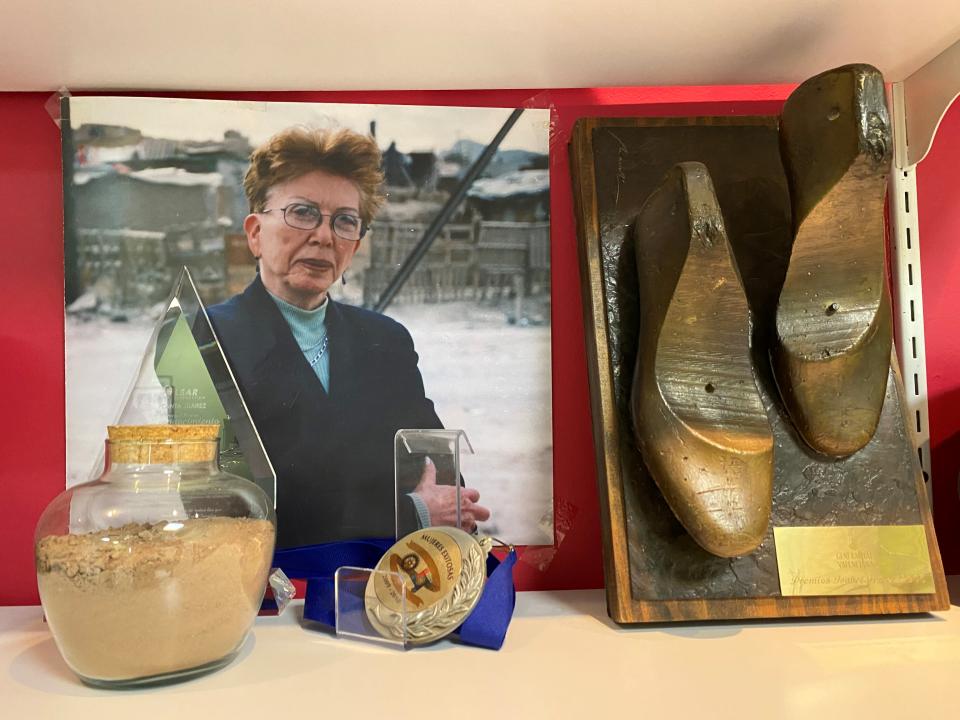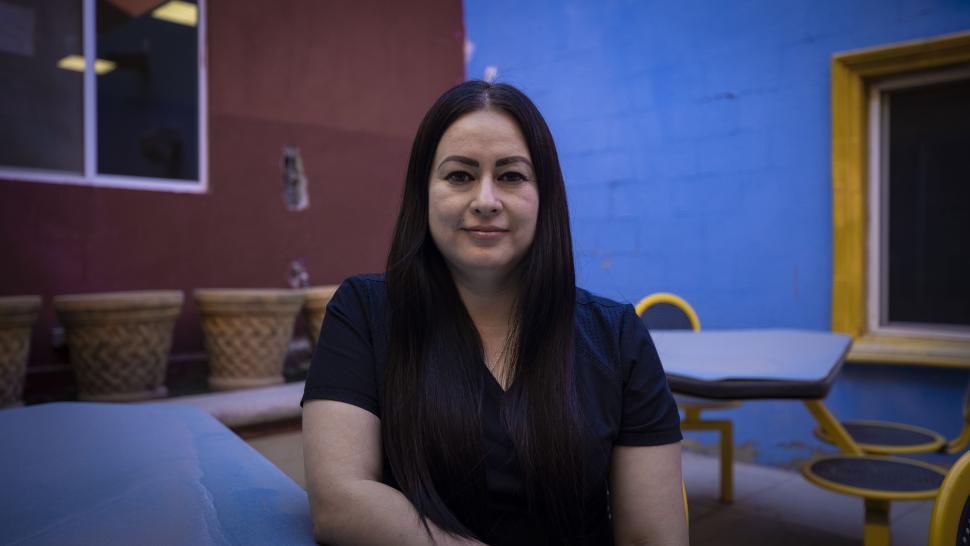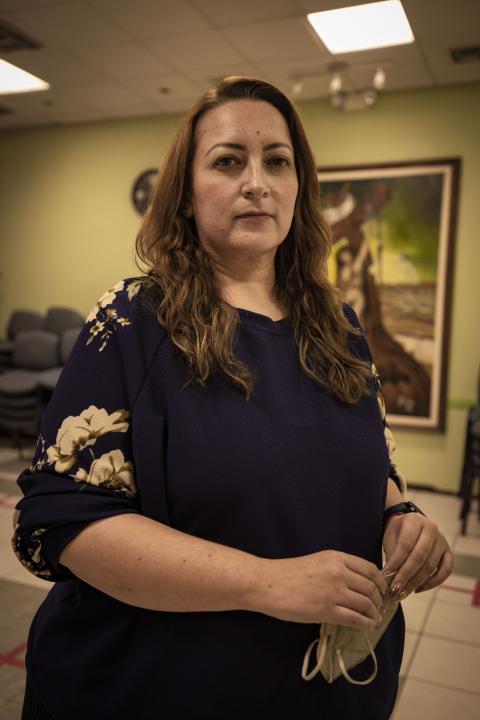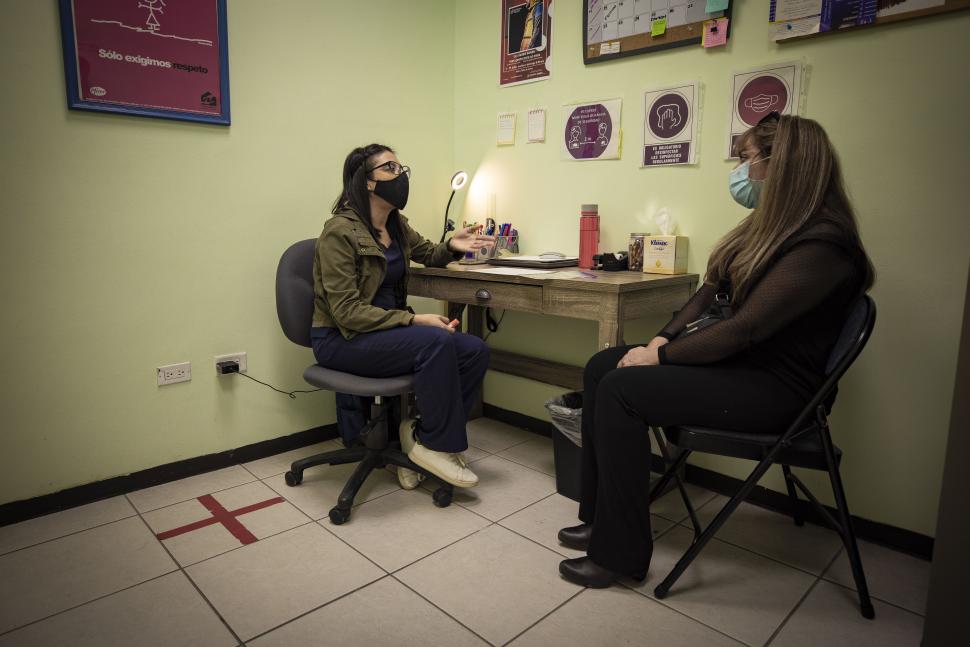Casa Amiga: a safe space in one of Mexico's most dangerous cities for women
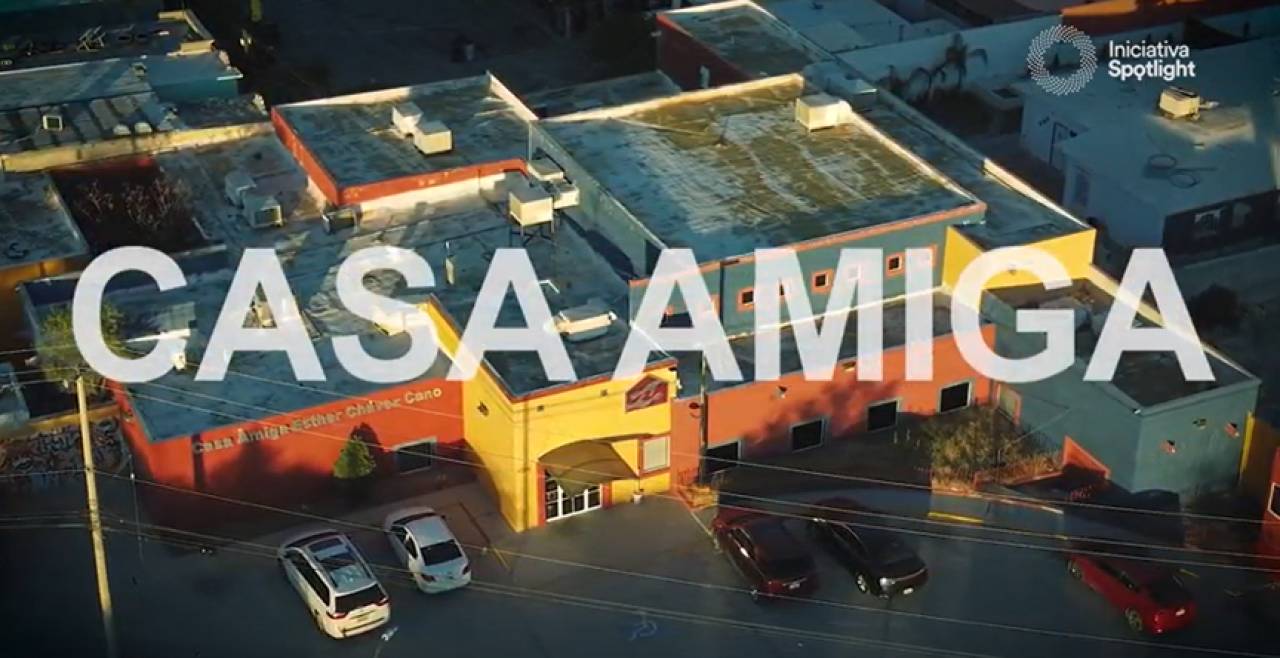
CIUDAD JUAREZ, Mexico - During the Nineties, one woman took on the task of documenting the disappearance and murder of hundreds of women in Ciudad Juárez. Although each story was treated as an isolated event by the media, she knew that it was a much more complex phenomenon. Yet, no one was paying any notice.
Esther Chávez Cano (1933-2009) was born in Chihuahua and worked all her life as an accountant in Ciudad Juárez. It was not until her retirement that she became one of the world's most recognized women's rights activists.
"Esther was asked what happens to living women, those who survive [the violence]. This is how Casa Amiga was born." - Lydia Cordero, Director of Casa Amiga
As a columnist for the paper Diario de Juárez, Ms. Cano began to see that women were being murdered with alarming frequency. Later, with support from other women from the state, she built a database of cases that are now know as the "Muertas de Juárez".
“Esther was a born defender of women and she dedicated the last years of her life to the fight to eradicate femicide and violence against women,” says Nancy Carrera, Coordinator of Interventions at Casa Amiga.
By 1999, Ms. Cano's work and the case of the "Muertas de Juárez" had gone global, putting the phenomenon of femicide in the city in the sights of Mexican and international researchers.
But the investigation was not the end of Ms. Cano's work.
“In 1999, Esther was asked what happens to living women, those who survive [the violence]," says Lydia Cordero, Director of Casa Amiga. "This is how Casa Amiga was born."
PIONEERS IN COMPREHENSIVE CARE
Casa Amiga was the first care centre in Chihuahua to offer comprehensive support, both psychological and legal, for women, girls, boys and adolescents who are survivors of sexual and family violence. It was urgently needed service, since "Ciudad Juárez is one of the worst places in the country for family crimes and sexual violence," says Ms. Cordero.
Twenty years later, Casa Amiga is a key player in the fight for women to a life free of violence. The house is located on the outskirts of Ciudad Juárez, a strategic place to care for hundreds of migrant women and maquiladora (factory) workers who do not have other support networks.
The organization has built a comprehensive model for assiting survivors based on intervention, prevention and advice.
INTERVENTION WITH THERAPY
Casa Amiga assists and accompanies survivors of sexual or family violence throughout their recovery.
"At first, women arrive with a lot of fear, nerves and guilt about undertaking a therapeutic process, because many times they think that they are responsible for what happened," says Ms. Carrera, Intervention Coordinator at Casa Amiga.
“In therapy, women are empowered so that they can present their complaints, and then we offer them legal support. Clients realize that they can do something for themselves and for other women by filing complaints," she adds.
RE-EDUCATION FOR PREVENTION
Casa Amiga also works with children and adolescents with a view to breaking the cycle of violence. Their work seeks to educate the youngest family members on their rights, as well as offering mothers a chance to promote change.
“We want to eradicate violence against women, and that entails prevention work," says Casa Amiga Director, Ms. Cordero. "We must transform social patterns, how women and men relate to each other.”
This also means working with men who perpetrate violence. The methodology addresses not only violence itself, but the behavioural patterns that cause it.
“Our culture does not give knowledge to women," says Ms. Carrera. "It is important that they know that they have rights, that they identify the various types of violence so that they can stop and say 'No'. It is an important message for other women too, that you can live a free life without violence."
REACHING WOMEN DURING LOCKDOWN
With the arrival of COVID-19 in Mexico, Casa Amiga saw the urgency of offering more safe spaces to the women of Ciudad Juárez. “We knew that the confinement was going to greatly aggravate situations of violence, since women would be forced to remain at home with their aggressors.”
For this reason, three city organizations joined forces to distribute brochures and flyers, using strategic spaces such as grocery stores and shopping malls to publicize their services.
“We wanted to let women know that confinement was not synonymous with enduring violence, that there were services available to help them,” says Ms. Carrera. "Through the flyers, Casa Amiga offered a 24-hour hotline and counselling services."
“Clients leave comforted, with hope of making changes in their personal and family life. It is very satisfying to see them set limits and break the cycle of violence."
STRENGTHENED THROUGH SPOTLIGHT INITIATIVE
In this context, Casa Amiga successfully applied for a small grant from the Spotlight Initiative.
The organization had a hotline, but it was wasn't enough. "For us it was very important to expand our space because most women cannot speak at home [where they live with their abuser]. We needed to provide a safe space for them.”
With the grant, two psychologists and a lawyer were hired to provide advice and face-to-face support free of charge. Casa Amiga also placed computers in its rooms, so that clients could have therapy sessions online in a safe and private space.
In addition to serving women, Casa Amiga was able to file complaints of family and sexual violence against girls and boys.
Esther Chávez Cano dedicated her life to the rights of women, a struggle that continues in the corridors and rooms of Casa Amiga. Today, Casa Amiga is a testament to Ms. Cano's work and legacy: offering the possibility of a better life for the women of Juárez.
Stay-at-home measures resulting from the COVID-19 pandemic led to an increase in violence against women and girls. According to figures from UN Women, domestic violence in Mexico increased by 60 per cent. The Spotlight Initiative, in partnership with the Government of Mexico, the European Union (EU) and the United Nations (UN), seeks to contribute to preventing and eradicating femicide. It supported Casa Amiga to provide psychological care and legal advice to women through its small grants programme.
Text: Elena Coll Guzmán and Martina Spataro Tron
Photos: Celsa Calderon and Eloísa Farrera.

